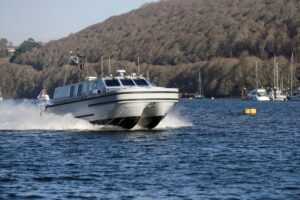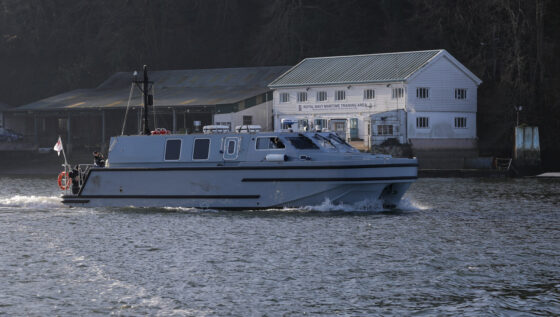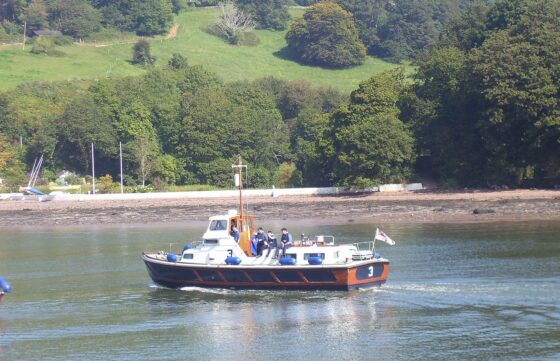
Royal Navy replaces historic training boats

The Royal Navy is updating its fleet of training boats for the first time in more than half a century.
Several generations of Royal Navy officer cadets – including current First Sea Lord Admiral Sir Ben Key – have used a flotilla of eight ‘picket’ boats to learn the arts of navigation, seamanship and leadership at Britannia Royal Naval College (BRNC) in Dartmouth.
The distinctive blue and white boats that have been piloted along the River Dart since the 1960s were retired at the end of 2021.
The fleet has been replaced by eight sleek grey, futuristic-looking jet-powered boats, packed with identical or similar tech officers will encounter when they join the front-line fleet.
The Royal Navy says these new boats are part of a wider programme called Project Vahana, which seeks to replace an assortment of craft and workboats across the fleet with a small flotilla based on a modular design. This will help to standardise maintenance and spare parts, and provide more modern and reliable training.

The new boats are part of a wider programme called Project Vahana
The 15-metre-long boats assigned to the college can reach speeds of 40kts but are limited to just six on the Dart – although with qualified personnel/instructors they can venture beyond the river and into the Channel if required.
As they are powered by twin jets rather than the propellers of their predecessors, and therefore handle differently, cadets will undergo two weeks’ training and assessment by instructors before they are allowed to take them out on the Dart.
When they do, they’ll find them “a whole different beast” says Warrant Officer 1st Class Dan Powditch.
“There’s quite a lot of nostalgia for the old boats – understandably given how long they have been around for and how many people have trained in them. We love them – they’re the closest thing to driving a warship,” he says.
“The Vahana boats are the polar opposite: new, modern – you can drive it using a mouse – more reliable, but we can teach more people, using equipment such as ECDIS electronic charting which they’ll find on warships.
“They’ll leave Dartmouth more experienced, more capable mariners.”

An original BRNC P1000-class picket boat on the River Dart
Each boat can train up to 16 cadets at a time, with basic accommodation. As training reaches its climax, the cadets will live and work on the new craft for up to a week.
Lieutenant Commander Patrick Kelly, head of the maritime department at BRNC, said the advent of the new boats would “undoubtedly add significant value to the core maritime and leadership training delivered at the college.
“Providing a modern and contemporary platform on which to conduct core craft handling and navigation training, it is, however, during leadership training and assessments where the craft will add the most value.
“Moving forward Vahana will support task force style leadership exercises ensuring that Officers Cadets have a task group mindset from the outset of their careers aligning BRNC training with the requirements of the future navy.”
